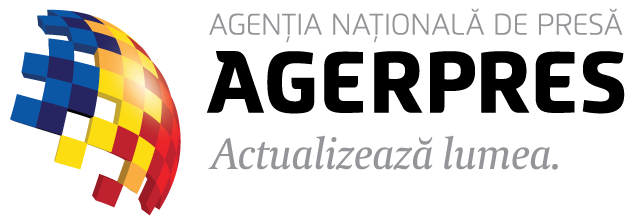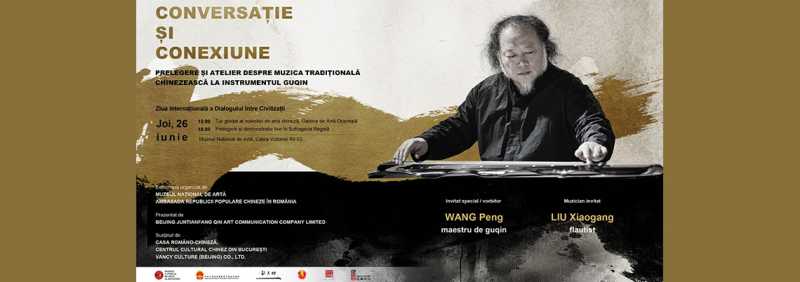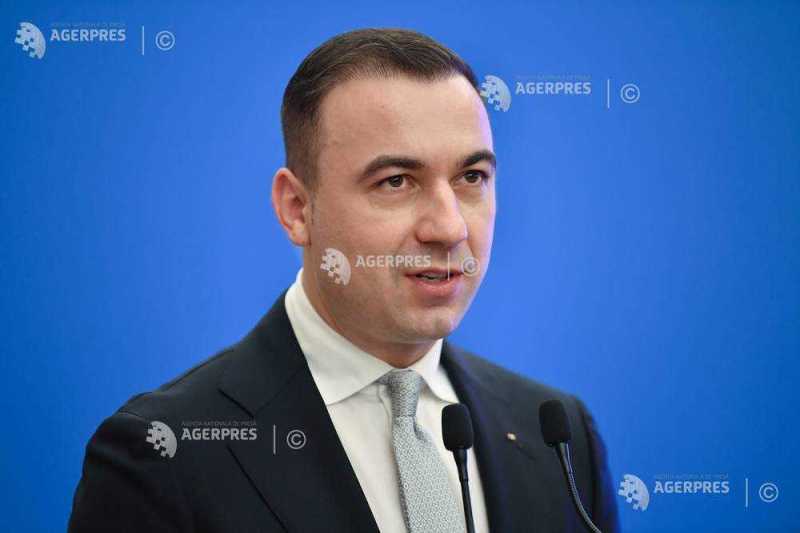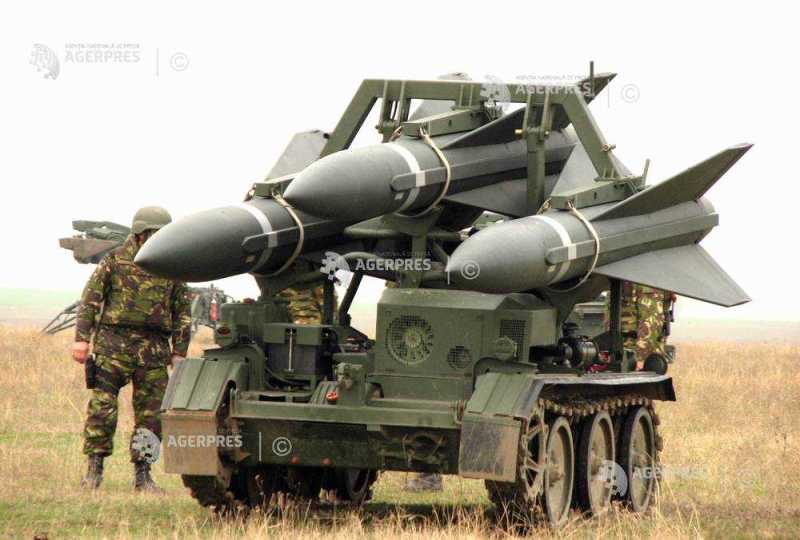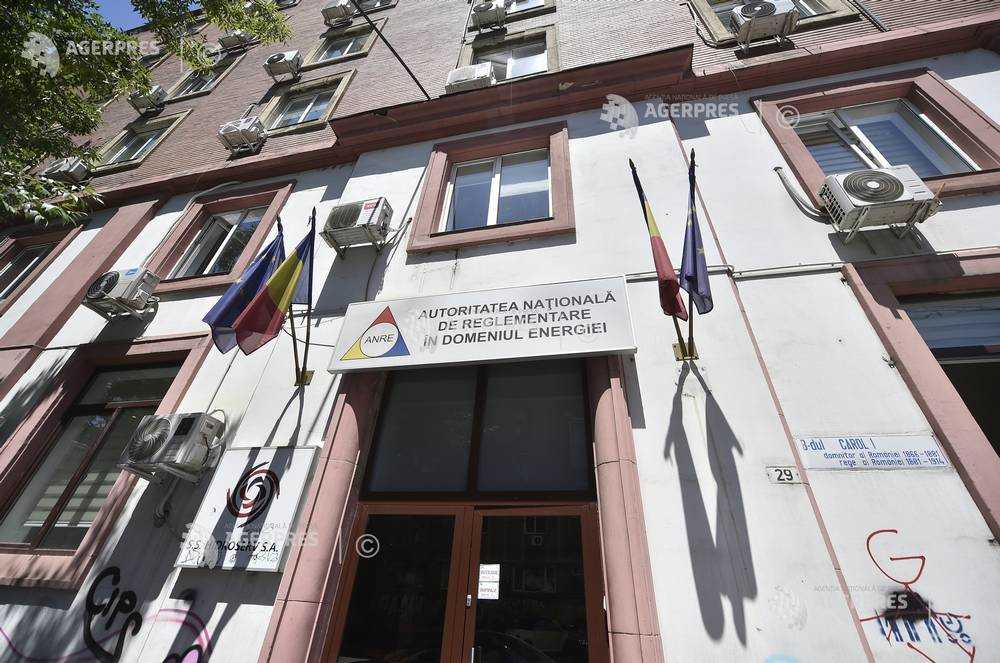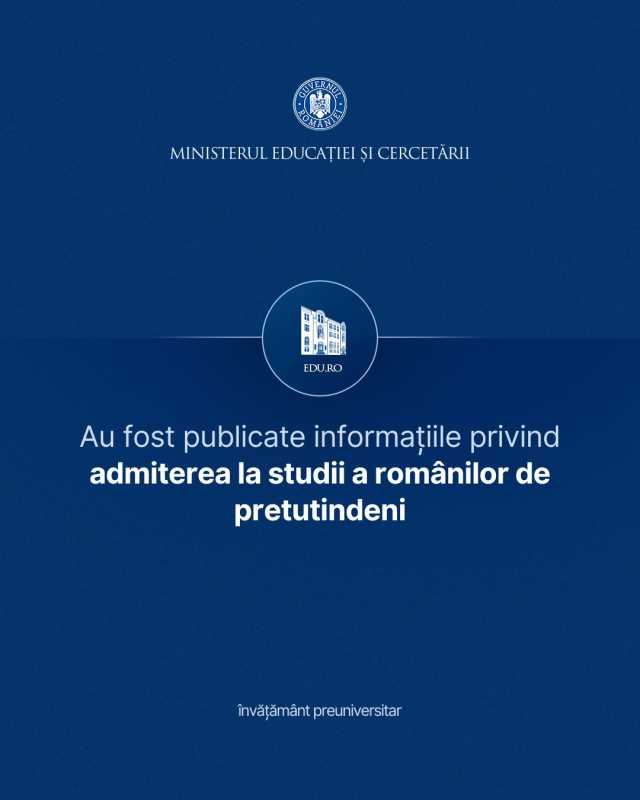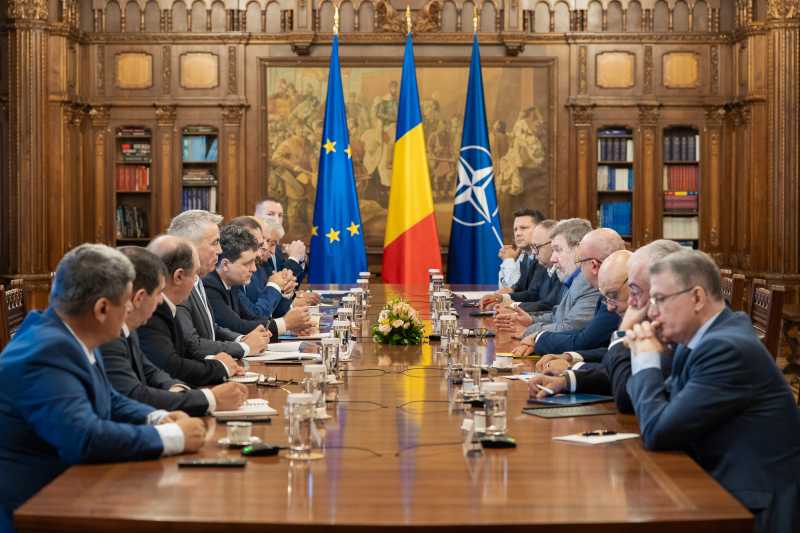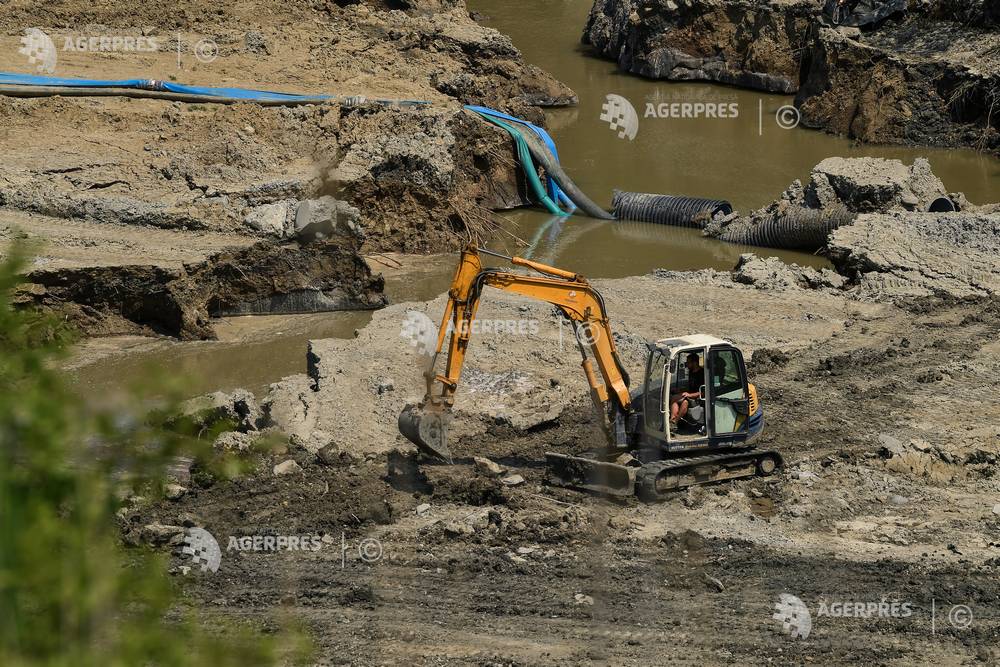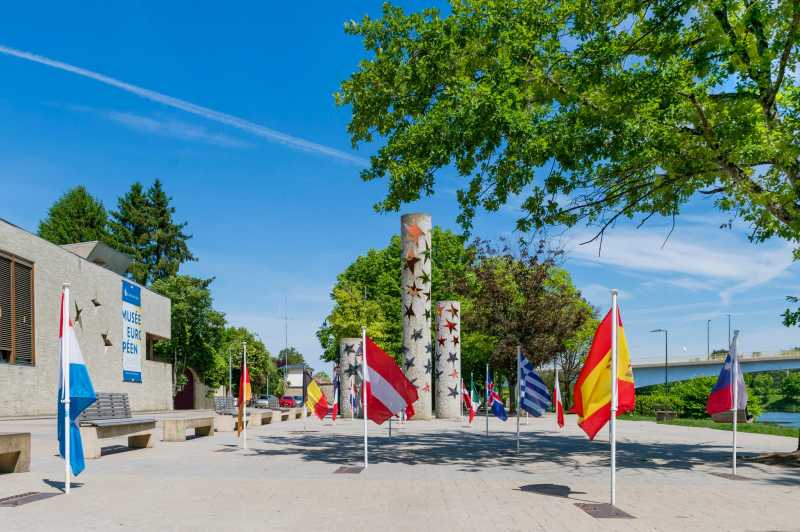CONTEMPORARY AUTHORS/Lora Nenkovska: 'Romanian literature deserves to be known profoundly'
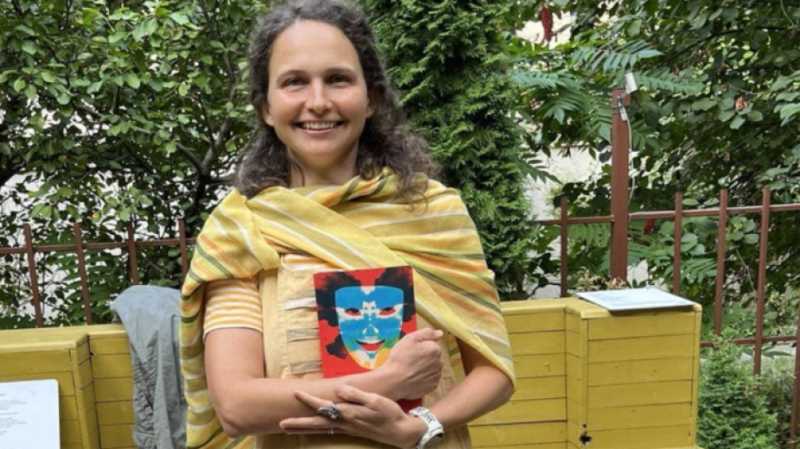
Romanian contemporary literature seems to be better integrated with the international circuit, thanks both to the constant institutional support it receives and the festivals, translations, residencies, magazines, public debates that help promote it, said Lora Nenkovska, translator and lecturer of Romanian language and literature at the 'Kliment Ohridski' University in Sofia, in an interview with AGERPRES.
Although she studied several Balkan languages at the Faculty of Philology in Sofia, she revealed in this interview what made her choose Romanian, in the end, while she also spoke about her current projects in both Romania and Bulgaria. Passionate about the Romanian language and literature, Lora Nenkovska says that she always keeps an eye on the Romanian book market, and that she is also interested in the Romanian theatre and in everything that it's being discussed in the Romanian cultural space. She has also been to Romania recently, where she received a translation scholarship from the New Europe College.
She translated more than thirty Romanian poets, novelists and screenwriters into Bulgarian, among them Andreea Rasuceanu, Bogdan-Alexandru Stanescu, Max Blecher, Simona Popescu, Mircea Eliade, Matei Visniec, Filip Florian, Ioan Grosan, Petru Cimpoesu and others, contributing thus to a an increased presence of the Romanian contemporary literature in Bulgaria and to a substantial expansion of the Romanian-Bulgarian cultural interactions.
Lora Nenkovska was decorated by the Romanian ambassador to Sofia, Brandusa Predescu, with the 'Cultural Merit' Order in rank of Knight, category F, 'Cultural Promotion', during a ceremony that took place at the Romanian Embassy headquarters in the Bulgarian capital city on April 8. This prestigious decoration was bestowed upon Lora Nenkovska by the Romanian president as a token of high appreciation for her contribution to the promotion of the Romanian language, culture and civilization in Bulgaria, through her activity of more than 15 years as a lecturer and translator of Romanian language, as well as for her contribution to strengthening the cultural ties between the two states.
AGERPRES: Why Romanian?
Lora Nenkovska: By a happy chance, I chose to study Balkan Studiesy at the University of Sofia, wanting to learn more about our neighbouring countries and also because I believe that language and literature are the best ways through which one can know other cultures. And I was very pleased with the programme they offered there. However, many years passed and I can say now that I never regretted, not even for a second, that I made this choice. I studied Balkan languages there, literature, history, linguistics (quite a lot) and many other very interesting subject matters in this area of culturology. But my first serious encounter with the Romanian language and culture came towards the end of my journey at the faculty, when I received a short scholarship from the University of Timisoara. It was then when I definitely chose Romanian language. After finishing the faculty, I continued with Romanian Philology and, in parallel, I did my PhD in Romanian medieval manuscripts. Thus, gradually, I gathered knowledge, I wanted to know more and more, and the Romanian language turned into a conscious, professional choice for me.
AGERPRES: What was your first translation from Romanian language?
Lora Nenkovska: My first translations from Romanian language were works by Ioan Grosan, Adela Greceanu, Cosmin Perta, Teodor Duna, Claudiu Komartin. They appeared in a literary magazine in Bulgaria, in a special edition that I prepared together with three other colleagues of mine in 2008, immediately after I got back from Mogosoaia, where I also had a translation scholarship for translators in training. In fact, it was thanks to this programme of the Romanian Cultural Institute and the excellent work done by Florin Bican that we, all the translators who participated in this programme, got to know Romanian language better and also the Romanian contemporary theatre. And the first novel that I translated was 'Simion Liftnicul' [Simeon the Liftite - translator's note] by Petru Cimpoesu, published in Bulgarian in 2009.
AGERPRES: How do you select the works that you want to translate? It's a known fact that you are one of those rare translators who are doing everything in their power to stay connected to the book market of the country whose literature they translate.
Lora Nenkovska: I don't know if I can describe exactly how I choose the works or books that I want to translate. There are many aspects that could make me want to translate a particular book. Sometimes, for instance, there is the narrative voice that I like, that unique tone that catches your attention from the first pages. In other occasions, however, there could be a certain topic that I am personally drawn to or a certain narrative style that provokes me professionally. Another important aspect for me is to feel that the respective book will strike a chord with the Bulgarian readers and a dialogue will be created that way or, in other words, that the book can send a message that is also relevant beyond borders.
Anyhow, I never choose a book with only my mind or my heart. Ideally, I choose it with both and I find that kind of text that moves me and challenges me professionally at the same time, provokes me to think about things. I guess it's rather a personal reaction that starts this whole process, and I need to feel an authentic connection with the voice of the author, with the world she/he builds, with the sound of the actual phrase in Romanian.
I constantly watch what happens on the Romanian book market, it's true, I read the literary magazines, I check the new arrivals and I also pay attention to the new theatre plays that are premiered and with the debates/discussions on the cultural scene as a whole. I am interested not just in the books that were already acknowledged by the critics or received awards, but also in the new voices, who bring something new, maybe a different rhythm or a courageous topic, a fresh formula.
I feel the need to keep myself informed when it comes to the Romanian literary life, and not just out of passion, but also because I teach literature, which means that maintaining this connection with the contemporary literary life helps me stay connected to the dynamics and directions in which the Romanian contemporary literature evolves. This is a field that deeply interests me, both professionally and on a more personal level.
AGERPRES: Which was the toughest translation from Romanian language that you ever did?
Lora Nenkovska: Actually, it's hard for me to think of the translations I did from the perspective of the difficulties they posed or the dilemmas they brought. And this is because I do not believe that there is such translation that's easy. However, I can say that the most difficult translation for me is the one I deal with right now. Otherwise, I like the difficulties that I encounter and the challenges any text brings. I like to discover hidden quotations, I like to struggle with the syntax and to look into how the characters' minds work.
And this is always the most complicated when you are still inside the book, when you must take the decision here and now and you know that the fragile balance and all the other aspects of the text depend on that decision.
AGERPRES: You also have a poetry in translation column that you sign in one of the cultural magazine in Bulgaria, 'Literaturen Vestnik,' which is called 'Poetic Reportages from Romania.' Who were the Romanian poets that you translated most recently for this column and how did you choose them?
Lora Nenkovska: Yes, this is one of the projects I am the most fond of. Unfortunately, it's becoming increasingly hard for me to find the necessary time to present more of the Romanian authors within this project of poetic reportages dedicated to the Romanian contemporary poetry. My initial idea was to present selections from the poetry of various Romanian women and men poets and also an interview with each of them, in order to create a space where people who are interested in poetry can discover how the Romanian contemporary poetry looks right now. And, in fact, that column was very well received. After each such 'reportage' I got a lot of messages, so I believe there is need of projects like this one.
As a translator, I believe it's very important a literature that is being translated to really be present in the cultural space of the other country, and for this to happen there are several conditions that need to be met, besides the actual translation of the book. First of all, that literature needs to become accessible to the public in the respective country, through various channels. Therefore, I believe that the literary magazines, the TV shows and the festival are really important in drawing the attention of the public.
Returning now to your question, I did succeed in making four such reportages until now, featuring Andrei Dosa, Anastasia Gavrilovici, Moni Stanila and Radu Vancu. There are two more that I have planned, but I am still working on those and I hope to be able to finish them this year.
AGERPRES: You've been visiting Romania recently for a scholarship that you won from the New Europe College (NEC), can you tell us a little about that?
Lora Nenkovska: Yes, I spent a couple of weeks at the NEC, in Bucharest, as a participant in the programme 'Tandem - Author with Translator - Translator with Author
(Lora Nenkovska, Translator, in association with Bogdan-Alexandru Stanescu, Author). This was a very precious opportunity that NEC offered to us literary translators. And the conditions were excellent too. The translator and the author worked together, and they were offered the necessary time and space to do it in the best conditions. I received this scholarship together with Bogdan-Alexandru Stanescu and I worked with him - I am still working - to translate his novel 'Abraxas.'
AGERPRES: Did you have time to also meet other people while in Bucharest?
Lora Nenkovska: Yes, I did have the chance to meet with other authors, publishers and poets, and also I went to several theatre shows and even went to the spoken poetry shows organized by Cosmin Perta. I was also invited by a literary circle to discuss the work of Dubravka Ugresic, since I am a big fan of hers. I believe that this type of residencies for translators offer a lot more than they seem to offer in the beginning, because they help us connect to the actual rhythm of the local culture, and with the literary environment more profoundly.
AGERPRES: You know quite well both the Romanian and the Bulgarian book markets, would you say that there are more similarities or more differences between them?
Lora Nenkovska: I believes that the two literatures have much in common, yes, both in terms of the topics they address, and in terms of their need to address the recent past, the complicated recent history that the two countries have. But I also think that there is a big cultural difference between the two, as the Romanian contemporary literature seems to be better integrated with the international circuit, both in terms of the institutional support it constantly receives and in terms of being more open to experiment and taking risks. I feel a certain vitality in Romania, an effervescence that has to do with more than just content, but also with the manner in which literature is being promoted and supported, through festivals, translations, residencies, magazines, public debates.
Unfortunately, we do not have the same institutional support for literature in Bulgaria, not to mention literature that it's being translated. We do have exceptional authors but, unfortunately, their voices reach their public with difficulty and they rarely become known beyond our country border. However, I do believe that the cultural exchanges between the two cultural spaces - through translations, joint projects and collaborations - can help reducing these gaps and bring our literatures closer to one another, in a natural way.
And I also feel that the civil society is stronger in Romania than it is in Bulgaria and the authors are more active in Romania when it comes to the social and political matters. The voice of the Romanian authors is often heard in the public space, in debates, in taking a clear stand, while the books themselves, in many cases, become an instrument of critical reflection on the surrounding reality.
AGERPRES: Romania is not very well equipped when it comes to translations from contemporary Bulgarian authors, although there were a few titles published in the recent years, especially Gheorghi Gospodinov's works being highly appreciated, how would you say that is Bulgaria standing when it comes to the number of translations from Romanian?
Lora Nenkovska: I could say that Romanian literature is well represented at this point. There were more than 90 books of Romanian authors translated into Bulgarian in the last twenty years. But, of course, there is always room for more. What I wish is for this interest not to be temporary or related to certain Romanian authors and that Romanian literature will become a constant presence in the Bulgarian publishing and cultural space. For the Romanian literature does have a lot to say about many things, it's diverse, courageous, very much alive and it deserves to be known profoundly.
AGERPRES: It's not just the Bulgarian contemporary literature, however, but the literature of the Central and South-Eastern European area in general that is rarely translated into Romanian, does it happen the same in Bulgaria?
Lora Nenkovska: Actually, things are a bit different in Bulgaria in that particular area. My colleagues who translate from Serbian, Croatian, Greek, Hungarian, Czech, Polish work intensely so that the Bulgarian public is able to get into touch with the contemporary literatures in our neighbouring countries and in Central Europe. However, as I said before, there is always room for improvement.
AGERPRES: You teach Romanian language and literature at the 'Sf. Kliment Ohridski' University in Sofia, how interested are the Bulgarian students in the Romanian cultural space?
Lora Nenkosvak: Literature helps us to better connect with each other and it makes an excellent subject matter, while for me it is also like a very pleasant way in which I can communicate with my students. The truth is that they come to the university without knowing much about the Romanian literature, so that I need to transform into a Scheherazade who tells them a lot of stories. I do everything in my power to capture their attention, through a diverse programme and by always staying open to dialogue. And I can say that they do show interest and they do show that they are willing to discuss about the differences they notice between the two literatures, the Romanian and the Bulgarian one.
AGERPRES: You will return to Romania soon, in May, to teach at the Faculty of Foreign Languages, under Erasmus, and this is not your first time doing that, how was it before?
Lora Nenkovska: Yes, during the pandemic, my colleague from the University of Bucharest, Catalina Puiu, invited me to hold an workshop online with the Romanian students who were learning Bulgarian. After the pandemic ended, she invited me to work again with her students for a week and this proved to be an excellent opportunity for them and for myself as well. For them because they could have some fun with my proposals in terms of translations and for me because I had the chance to tell them endlessly that I was actually a guest in their language and that the best decisions belonged to them. And for me it was very useful because it forced me to change my teaching perspective. More than that, I prepared courses about Bulgarian contemporary authors. This year, for instance, I intend to tell the students about three powerful Bulgarian poets, whose poetry volumes were published in the early 2025. Catalina Puiu told me that, after my arrival, all her students became enthusiastic about translating and they even shared a book among them to translate it.
AGERPRES: What project do you have in mind for the next interval?
Lore Nenkovska: I do have several projects on my table right now. First of all, there will be published in Bulgarian three books that I translated this year: 'Abraxas,' [Abraxas] by Bogdan-Alexandru Stanescu, 'August' [August], by Elena Vladareanu, and an anthology of Romanian contemporary poetry, made by Claudiu Komartin. More than that, I also wish to be able to finish at least the two poetic reportages I told you about, for 'Literaturen vestnik'. AGERPRES (EN - writing by: Cristina Zaharia)
The content of the www.agerpres.ro website has the exclusive purpose of public informing.
All the information published on this website by AGERPRES is protected by relevant legal dispositions.
It is forbidden to copy, reproduce, recompile, decompile, distribute, publish, display, modify, create derived components or products or full services, as well as any exploitation of the site's content.
Details in the section Terms of Use. If you are interested in picking up AGERPRES news items, please contact the Marketing Department – [email protected].
The use of the Comments section entails your obligation to respect the AGERPRES terms and conditions in regards to the publishing of comments on the www.agerpres.ro.
Other news in category
Lecture and live demonstration of Chinese Guqin at Romania's National Museum of Art on June 26
Romania's National Museum of Art will host on June 26 the cultural event 'Conversation and Connection - Music Holds the World Together'. The event dedicated to the International Day for Dialogue among Civilizations includes a guided tour of the China Hall in the Oriental Art Gallery, followed by a lecture and a live Guqin musical demonstration by r
U.S. Chargé d'affaires Dickerson: Romania and the United States - partners in cybersecurity
Romania and the United States are working together as partners in the field of cyber security, said Michael Dickerson, the Chargé d'Affaires ad interim at the U.S. Embassy in Romania, according to a press release issued by the diplomatic mission in Bucharest on Tuesday. The statement was made in the context of the Maryland National Guard Cyber Force
Universal IE Day, celebrated on Sunday with folk music, dance and traditions at Mogosoaia Palace
An open-air traditional Romanian folk music concert, dedicated to the Universal IE Day, also known as the Universal Day of the Romanian Blouse, will take place on Sunday in the Court of Honor of the Mogosoaia Palace. The event, organized by the Cultural Centre 'Brancoveanu Palaces at the Gates of Bucharest' and the 'Paul Constantinescu' Philhar
COMOTI Research Institute contributes Mechanical Ground Support Equipment to ESA's Proba-3 mission
The Romanian Research & Development Institute for Gas Turbines COMOTI designed and delivered ground handling equipment for two satellites as part of the European Space Agency's (ESA) Proba-3 mission, informs the National Research Authority. 'COMOTI - Romanian Research & Development Institute for Gas Turbines, coordinated by ANC, played an essen
EconMin Ivan: Dragomiresti to host the NATO Ammunition Centre of Excellence for the whole of Europe
Economy Minister Bogdan Ivan, while on a visit to Dambovita County on Tuesday, said that Dragomiresti will host the NATO Ammunition Centre of Excellence for the whole of Europe, underlining the importance of such a strategic investment. 'The most important point of our visit is the fact that here, in Dragomiresti, the NATO Ammunition Centre of Excellence f
Survey: Over 72% of Romanians would support increase in defence spending
Over 72% of Romanians would support an increase in defence spending so that Romania can defend its sovereignty in the event of a military aggression, according to an INSCOP survey conducted between May 26-30. 'In the context of growing discussions about Europe reducing its military dependence on the U.S. and NATO by increasing expenditures in the Defence a
Tagliaretti (ECCC): Artificial Intelligence is the number one priority for investments in the coming years
Artificial Intelligence (AI) is the number one priority in terms of investments and we want to secure the databases that use this technology, the executive director of the European Cybersecurity Competence Centre (ECCC), Luca Tagliaretti, said on Tuesday at the 7th edition of the Digital Romania Forum event. 'The European Cybersecurity Competence Centre (E
Metsola: Romania and Bulgaria's accession to Schengen was long-awaited step towards prosperous and secure Union
AGERPRES special corespondent Tudor Martalogu reports: The accession of Bulgaria and Romania to the Schengen family, which now consists of 29 countries, was a long-awaited step towards a more prosperous, united and secure Union, the President of the European Parliament (EP), Roberta Metsola declared on Monday, in the EP plenary session, in Strasbourg, on the occasion of the
ANRE dismisses as unfounded claim that Romania is supplying cheap natural gas to Austria
The claim disseminated in the public space by the senator of the Alliance for the Union of Romanians (AUR), Petrisor Peiu, according to which Romania is supplying cheap natural gas to Austria, to the detriment of Romanian citizens, is completely unfounded, maintain the representatives of the Romanian Energy Regulatory Authority (ANRE) in a press release sent to AGERPRES.
Ministry of Education updates information on high school admission for Romanians everywhere
Romanians everywhere can submit online application forms for admission to state high school education in Romania for the 2025-2026 school year between July 10 and 17, the Ministry of Education and Research informs on Monday. According to the same source, the results will be posted on July 22. The calendar for admission of Romanians everywhere to
FinMin Tanczos: Romania marks important stage in its quest to recover painting 'Saint Sebastian' by El Greco
Romania has marked a new milestone in its quest to recover the painting 'Saint Sebastian' by El Greco through the suspension of the auction scheduled at Christie's New York until the completion of due legal proceedings, the minister of finance and deputy prime minister, Tanczos Barna announced on Monday. Thus, the masterpiece painted by El Greco, m
Union leader Hossu: Assessment with parties, employers, unions on deficit-related measures; gov't in place by June 30
Cartel Alfa Trade Union leader Bogdan Hossu said on Monday, after the meeting with President Nicusor Dan, that by June 20 an assessment would be carried out with the parties and employers' associations on the measures for reducing the budget deficit, adding that a full-fledged government would be invested by June 30. 'The president, as well as the pres
EnviMin in flood-ravaged town of Praid, says Hungarian authorities notified of incoming high salinity spillover
Minister of the Environment, Waters and Forestry Mircea Fechet declared on Saturday during a working visit to the flood-ravaged salt mine town of Praid - Harghita County, that concerns persist regarding the alarming rise in chloride concentrations in both the Corund and Tarnava Mica watercourses, as well as in the Tarnava Mare and Mures rivers, and that the Hungarian authori
ForMin Hurezeanu at Schengen Agreement anniversary event in Luxembourg, underscores importance of Romania's membership of border-free zone
Foreign Minister Emil Hurezeanu participated on Saturday in the ceremony marking the 40th anniversary of the establishment of the Schengen Area, which also saw the reopening of the renovated European Schengen Museum and of the restored Princesse Marie-Astrid Europa ship, on which the signing ceremony of the landmark Schengen Agreement took place, the Foreign Ministry said in
In bid to quell violence, Romanian consular mission in Edinburgh engages in talks with Northern Ireland authorities
Following the violent disorders that occurred in recent days in Northern Ireland, a diplomat from Romania's Consulate General in Edinburgh traveled to Ballymena - Antrim County for meetings with representatives of the local authorities in Mid and East Antrim, the Romanian Embassy in London reported on Friday. The Romanian consul responsible for liaison wit
